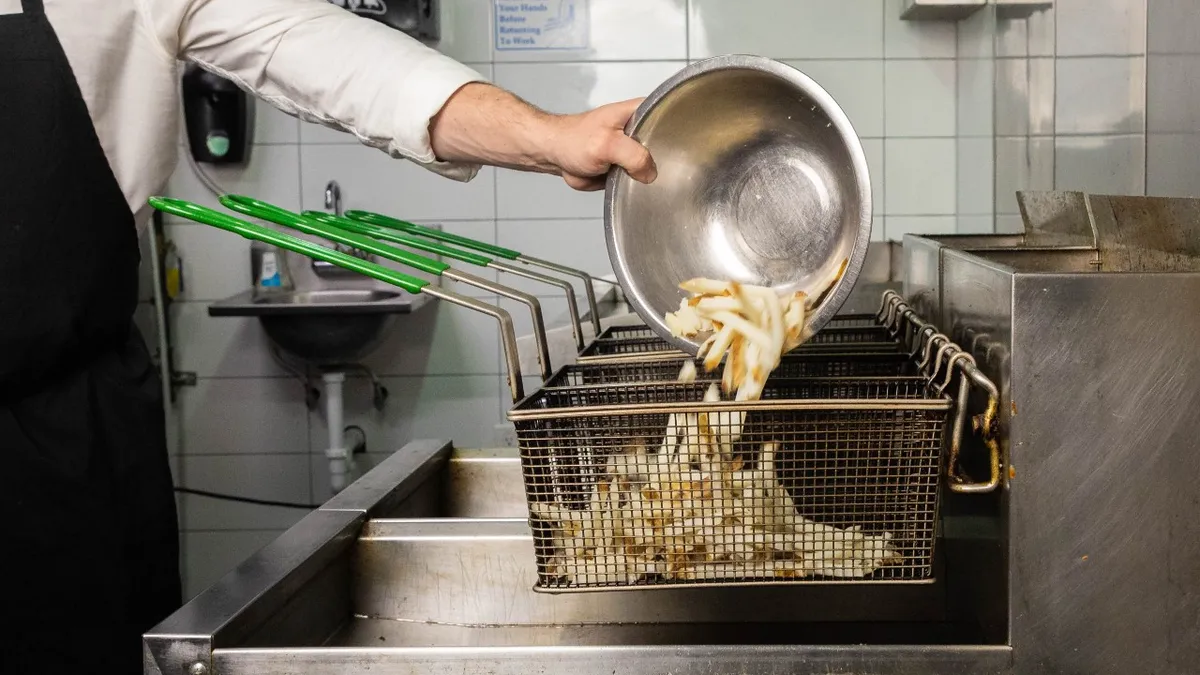Dive Brief:
- Declining restaurant traffic created a potato surplus for one of the world's largest producers of french fries.
- Boise, Idaho-based Lamb Weston Holdings purchased more potatoes than needed based on overly aggressive sales forecasts, President and CEO Tom Werner said on a second quarter earnings call Jan. 4. The processor reported a $71 million charge to write off the excess supply.
- Demand for french fries has sputtered as consumers dine out less due to rapid inflation. North America sales volumes declined 4% in the quarter, though profits increased in part due to higher french fry prices.
Dive Insight:
As the restaurant industry experiences a bumpy recovery from the pandemic, its suppliers are feeling the pinch.
Lamb Weston contracted its farmers to plant potatoes in January 2023, when demand remained strong as diners flocked to restaurants with the easing of pandemic restrictions. Once restaurant traffic collapsed mid-year, the processor was left to foot the bill for all the excess potatoes it contracted.
"Per our agreements with our growers, we're obligated to purchase all the potatoes grown on these contracted acres," Werner said. "However, our initial sales forecast has turned out to be more aggressive than our current estimate, reflecting recent restaurant traffic demand trends."
Beyond declining restaurant traffic, higher-than-expected crop yields also contributed to Lamb Weston's surplus. This year's harvest "certainly was better than what we expected and have seen in the last several years," Werner said.
Restaurant traffic has declined for eight consecutive months, according to the latest data from the National Restaurant Association. Inflation has also impacted restaurants' purchasing activity, with some reducing their menu sizes and suppliers.
The restaurant industry could begin to see a rebound, however, as same-store sales showed improvement in November, the National Restaurant Association said. Lamb Weston expects sales volumes to recover in fiscal 2025, and has "planned to contract for acres accordingly."
The processor is in the middle of contract negotiations with its farmers, and declined to answer investor questions about whether it would purchase fewer potatoes.











